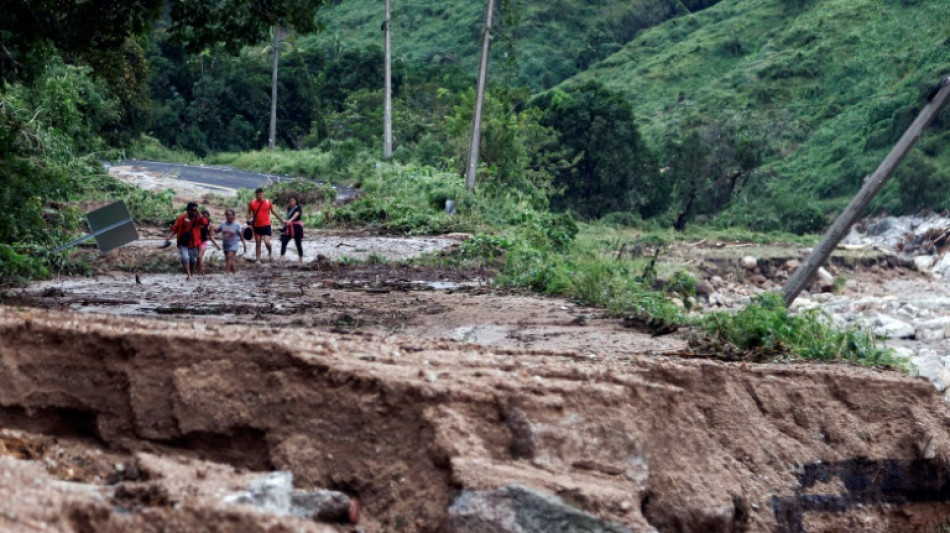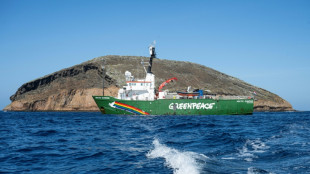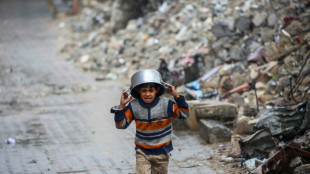

Hurricane leaves at least 27 dead in Mexico's Acapulco
Hurricane Otis killed at least 27 people as it lashed Mexico's beach resort city of Acapulco as a scale-topping category 5 storm, officials said Thursday, in what residents called a "total disaster."
The storm crashed into Acapulco with furious winds of 165 miles (270 kilometers) per hour, largely cutting off communications and road links with the region.
President Andres Manuel Lopez Obrador arrived at the scene late Wednesday, after his convoy found roads blocked by landslides and other debris, forcing top officials to abandon their vehicles and walk the final miles.
The closures meant some residents slogged for hours through mud and debris in an attempt to find food and shelter.
"Acapulco is a total disaster. It is not what it was before. The park was totally destroyed, the buildings, all the streets," said 24-year-old Eric Hernandez, who made the decision to leave on foot.
"The shops had all been looted, people were fighting for things. So we decided to walk as there wasn't anything left there," he said.
Others said an overflowing river and collapsed bridges had cut off communities near Acapulco.
"A lot of people got stuck on the other side of the river in our village, which was overflowing a lot. People were left homeless, there's no electricity," said Israel Perez, a 21-year-old baker.
Security Minister Rosa Icela Rodriguez told a news conference Thursday that 27 people were dead and four were missing.
- Aid convoy -
A convoy carrying humanitarian aid set off to try to reach Acapulco -- home to about 780,000 people -- by land since the airport was closed, authorities said.
Otis rapidly strengthened to the most powerful category of the five-step Saffir-Simpson scale before hitting land overnight Tuesday-Wednesday, taking authorities by surprise.
"Rarely, according to records, does a hurricane develop so quickly and with such force," Lopez Obrador said.
People recounted a terrifying ordeal as Otis made landfall on the usually sun-kissed resort town.
"The building shook as if there was an earthquake," Citlali Portillo, a tourist accommodation manager, told the television channel Televisa, adding that she had taken shelter in a bathtub.
Videos posted on social media showed severely damaged hotels and other buildings, including many shattered windows.
Tourists used beds and mattresses for protection in their hotel rooms, once windows were blown out.
Toppled trees were seen in the debris-strewn streets and a shopping mall appeared to have suffered major structural damage in Acapulco, located in the southern state of Guerrero.
More than 500 emergency shelters were opened for residents.
Hurricanes hit Mexico every year on both its Pacific and Atlantic coasts, usually between May and November, though few make landfall as a Category 5.
In October 1997, Hurricane Pauline hit Mexico's Pacific coast as a Category 4 storm, leaving more than 200 people dead, some of them in Acapulco.
It was one of the deadliest hurricanes to batter Mexico.
In October 2015, Patricia became the most powerful hurricane ever recorded, pummeling Mexico's Pacific coast with sustained winds of 200 miles per hour.
But the storm caused only material damage and no deaths as it made landfall in a sparsely populated mountainous area.
Just this week, Tropical Storm Norma left three people dead, including a child, after making landfall for a second time in the northwestern state of Sinaloa.
Earlier this month, two people died when Category 4 Hurricane Lidia struck the western states of Jalisco and Nayarit.
Scientists have warned that storms are becoming more powerful as the world gets warmer with climate change.
R.Abreu--ESF




